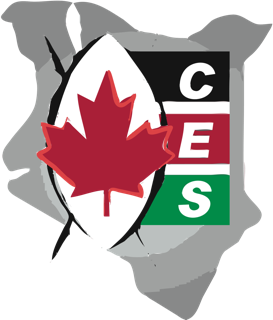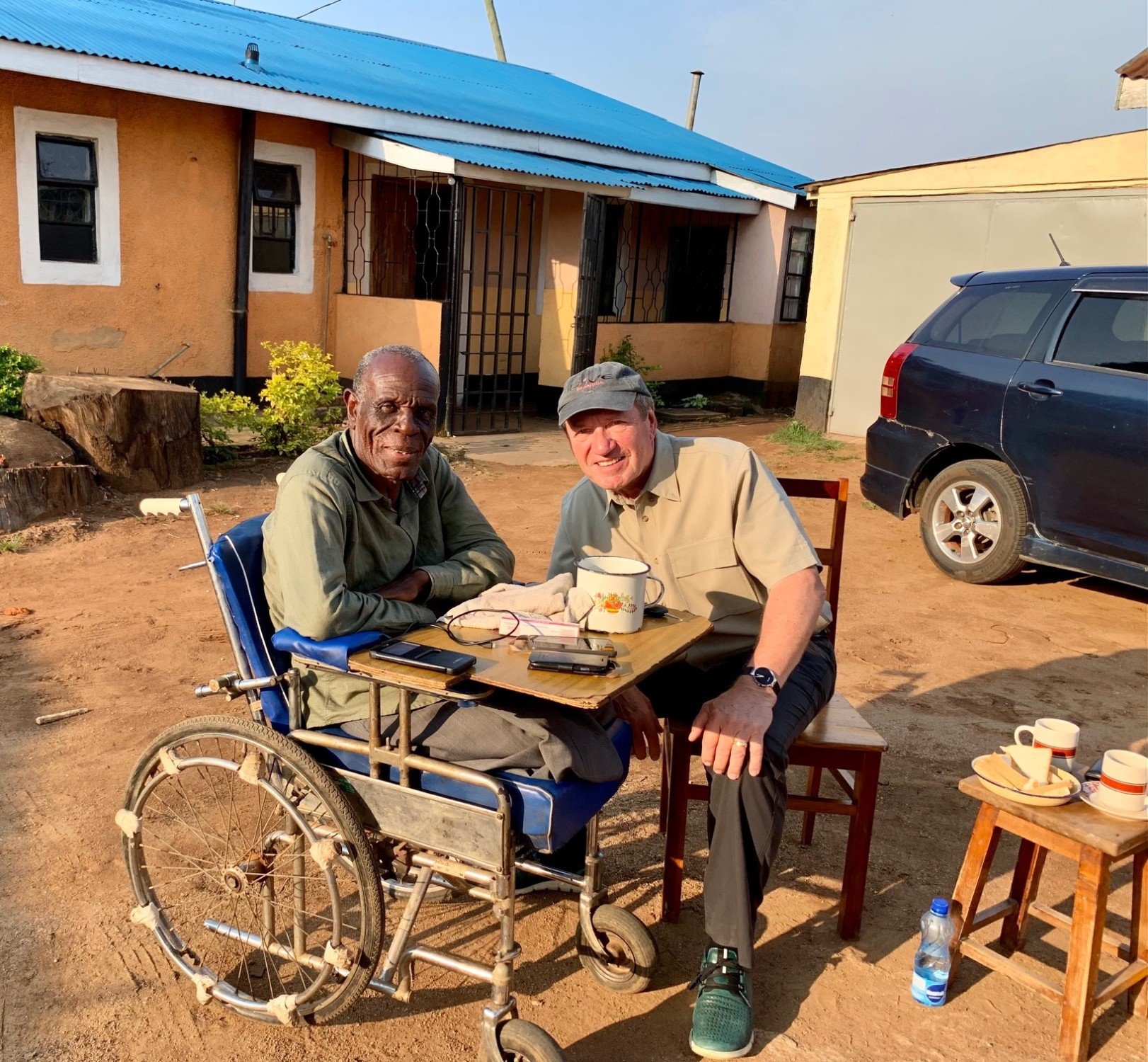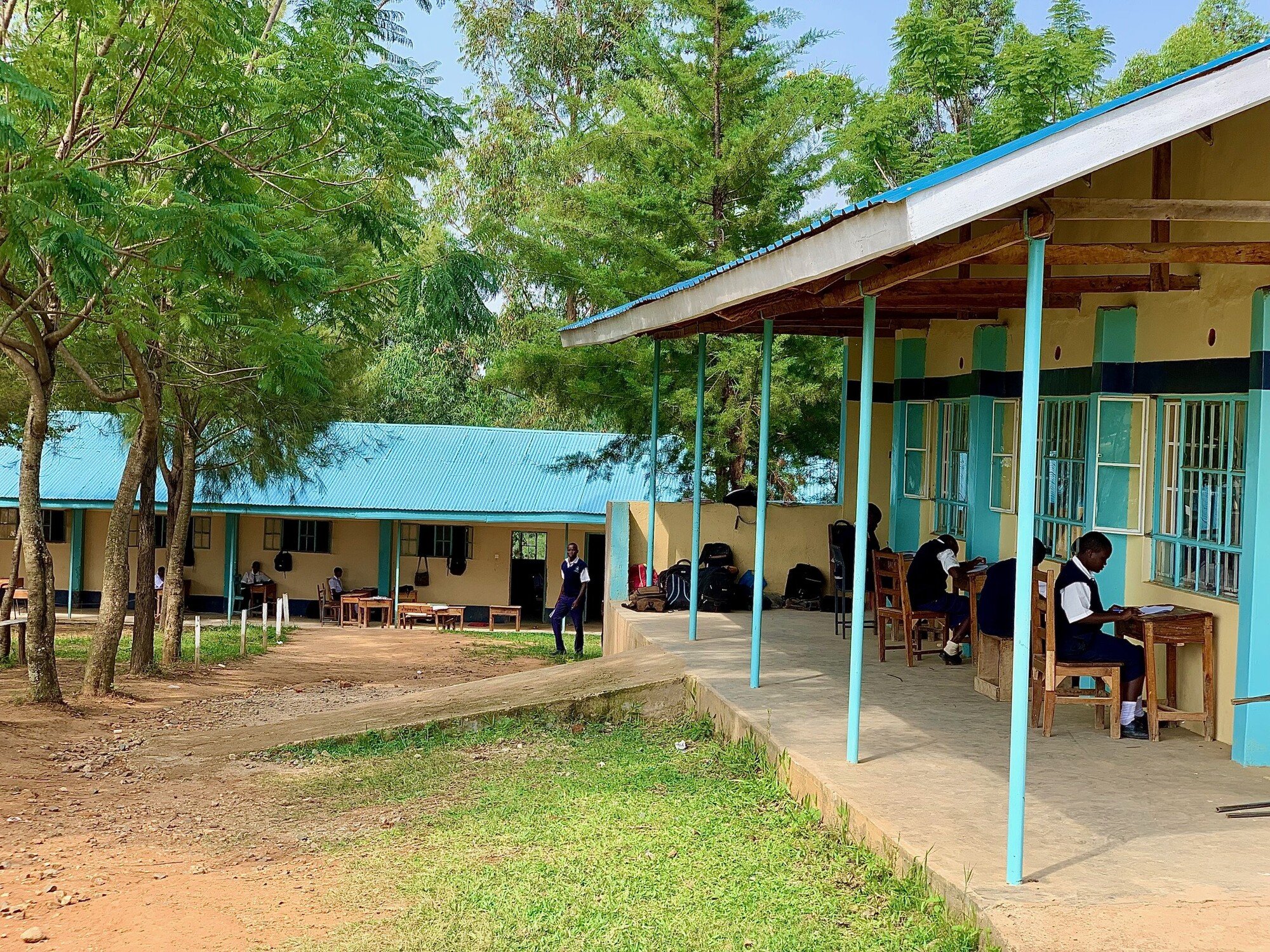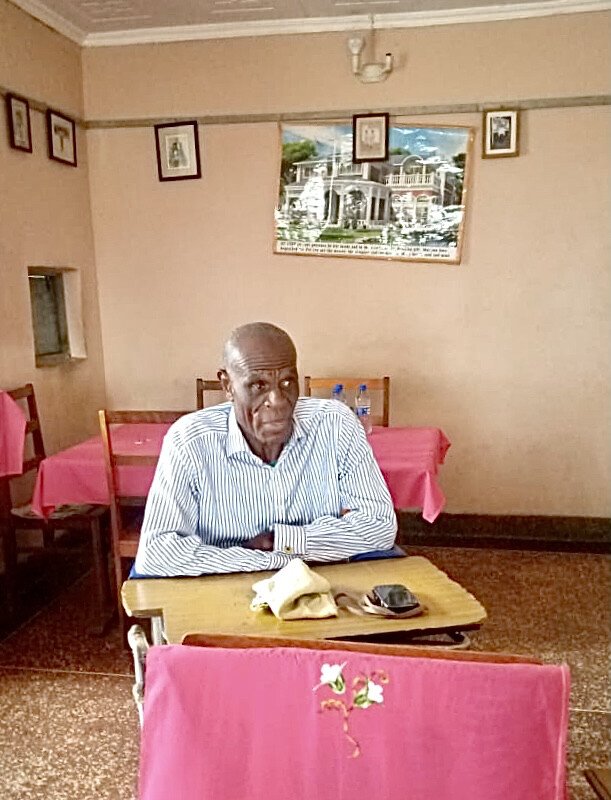My Friend Billy
I first met Billy, March 10, 2010. Seated in a wheelchair in front of the Admin Block at Eshitari SS, he looked like the professor Emeritus with his light grey suit and blue tie. It was his smile and those warm, captivating eyes that drew me to this man. His welcome was genuine, and as he nudged his hand forward on the tray-table in front of him, I began to realize this was no ordinary person.
In 2008, CES Kenya Director –– Reverend Livingstone Nyanje recommended that our NGO adopt Eshitari SS as one of its schools. Two years later we were celebrating the opening of CES Canada’s first well project. CES associate, Canadian artist Teresa Harris was part of this event, planting a tree to commemorate the occasion. The one hour journey from Kakamega gave us time to talk about his vision for the school community. Five orphaned students were being supported in their school fees, and now fresh water for local villagers and two schools was a reality. And by the way, I would be seated next to Billy at the official inauguration. At this point we had passed the Bukura Agricultural College, and turning north off the main road into farm country, we were quickly surrounded by fields of maize, sorghum and sugar cane. Eshitari SS was just up ahead.
As Chairman of the Eshitari SS Board of Governors, Billy was proud to introduce me to the principal and staff and other Board members. Nearby, standing underneath the Kenyan flag were five students dressed smartly in their light and dark blue school uniforms. Billy motioned for them to come closer. We were greeted by two girls and three boys from Form 2, with Alice Shisoka (BA 2018, MMUST) being the “chief greeter.” One thousand children, youth, teachers and parents had gathered, some walking ten kilometres over rugged, red clay backroads.
It was a day that remains with me, an indelible impression of joy and jubilation. I left Billy that day, knowing we had much in common –– a love for education, and a passion to include disabled children in school learning.
A return visit to Kenya, would be incomplete without seeing my friend Billy. An afternoon spent at his home compound makes me realize how fortunate I am to have lived a lifetime with polio, and spared to enjoy a full and fulfilling life. The amazing thing is that despite his physical challenges, he remains thankful, eternally positive.
Billy has provided valuable insight into the needs of CES students that face physical challenges, and who require accommodations to meet their educational needs. He has served as Chair of the Board of Governors of CES associated schools at Eshitari SS, and also Kilimo Girls SS. Here below is an accessibility ramp built at Eshitari SS, as encouraged by Billy and the Eshitari BOG.
In 2013 I asked Billy to be our Special Envoy, Education Advisor for Disabled Youth. His response, “I am aging and strength is fast draining out of me, though my will to assist persists. Education for children living with disabilities lags behind in Kenya though policies about it have been put on paper. Most of these children come from poor families. The government has a policy to integrate disabled children in normal schools, but it has not put in place the required infrastructure necessary to enable the children to acquire education. I am ready to offer advice to CES and feel humbled by your request. Thanks, God bless."
Billy O’wabucheli (son of Bucheli) was born in the year 1951 in Eshitari Village, Butere Sub county, Kakamega County in the Western region of Kenya. From birth he was healthy and achieved developmental milestones like any other child. He went through his early education and in 1970 joined the University of Nairobi where he graduated with a Degree in Education specializing in Geography and Linguistics. He was an enthusiastic athlete at the university level.
After graduation, he was posted to Sigalame Secondary school as a teacher. While studying Education at the Master’s level, Billy was transferred to Asumbi Teachers Training College where he worked as a lecturer. There, he continued his love of coaching and athletics. Later he achieved a Masters degree in Education Administration and Curriculum Development.
Tragically, in 1978 he was involved in a serious road accident while taking students on a Geography tour to Masai Mara National Park. He and other teachers had organized for their students to take part in co-curricular activities. Leaving Asumbi Teachers Training College, the bus headed for the coastal region destined for Shimo La Tewa Teachers Training College. Billy was seated close to the door usually reserved for the bus conductor. After 50 kilometres, there was an accident near the village of Awendo. The impact made him fall onto the bus door stairs. This made his rescue close to impossible. In their hurry to escape, people were stepping on and over him. At the age of twenty-seven, he was forced to retire on medical grounds, confined to a wheelchair.
This did not dampen his resolve and spirit to serve his fellow man. Billy realized the stigmatization and discrimination of those with disabilities. He became well known for his concern for those without access to education, employment, health services, transport facilities and recreation. Billy has made contributions to the 2003 Kenya Persons with Disabilities Act. For the past four decades, he has been an outspoken social activist, advocating for rights of persons with disabilities. Currently Billy is Chairman of the Butere Persons with Disabilities Forum.
During an interview (09.17.21)) conducted by CES Associate Consolata Agidza, she was impressed with the fact that Billy recalled the event with no emotional pain or malice. He remembered seeing a pair of legs badly injured, and he wondered how the owner of those limbs was feeling. They were his. He tried to get up, but to no avail. Billy was rescued by his colleagues who he described as ‘good Samaritans’. Hospitalized at Kijabe Orthopaedic Hospital, he was to learn that his neck had been broken and that he had suffered a spinal cord injury at the C4 vertebrae. At first he feared he would require 24 hour a day support to breathe and maintain oxygen levels. Later it was confirmed, he was a partially quadriplegic with minimal use of his arms.
Having lost his lower limbs came as a shock to him. He went through the grieving process and during that time was grateful for special prayers from his daughter. After 18 months Billy was discharged. Returning home, he needed assistance with everything. He could not go back to work as he had lost his sense of touch. With support from his family, he was able to accept his condition.
Consolata reported, “The story of Billy O’Wabucheli is a story of hope, great faith and resilience. He continues to give God thanks for his life and for what he has been able to accomplish. Billy lives a full life with a very warm and welcoming smile. I am just short of words to describe how great a man he is.
If many of us could have this hope that lives in Billy, we will totally integrate people who are abled differently.”
Ms Agidza is a graduate of the Carol Teachers Training College and the Kenya Institute of Special Education, established in 1986 with the aim of meeting the educational needs of disabled children, youths and adults. She currently works as an itinerant teacher working with special needs learners. During the visit she discussed with Billy the fact that many youth with disabilities face stigmatization from their community. Cultural beliefs and societal norms create an environment where disabilities are viewed as curses. Some are separated and made to stay at home, while others attend a school for special needs without any form of inclusion or integration with their peers.
“There should be civic education to enlighten the people about different disabilities, and assessment centres put in place to help those at the onset of a disability. All public buildings and amenities as well as services should be accessible to PLWD’s. There’s just too much that has to be done for our communities to be fully inclusive,” said Billy O’Wabucheli.
Billy knows first hand the frustrations and challenges that persons with disabilities face. “Our public service vehicles have no room/modifications to accommodate people with special needs. For most surviving on less than $1US a day, hiring a vehicle to go from one point to another is impossible. The cost of both transport and other health services for PLWD’s should be waived.”
Billy has been fully vaccinated with the AstraZeneca Covid-19 vaccine. Being vulnerable through age and health compromise, he has encouraged people living with disabilities (PLWD’s) to get vaccinated. He is vocal in his community and in the social media in debunking myths about the perils of taking a vaccine.
“With the onset of Covid-19, the county has lost so many PLWD’s due to hunger, starvation, police brutality, and sickness because they can’t access health care services. Also, there have been so many deaths of people with disabilities from Covid19 related complications which have not been documented. Too many PLWD’s are found on the street begging which makes them prone, exposed and vulnerable.”
As a member of the Kenya National Council for Disabled Persons (NCPWD), Billy continues to advocate for the rights of people with special needs and to fight for full inclusion in schools. His strong interest is to help people mobilize funds for them to engage in income generating activities for their sustenance.
Billy leads a march in Butere Kenya during the 2016 National Day to recognize Persons Living with a Disability.
“We must sensitize PLWD’s on what they need to do and how they need to handle themselves, where to get help from and how to seek the said help. We must also sensitize the communities/societies on the different special needs in the society and how to include and incorporate them in the day to day activities. With 3 million people in Kenya with a disability, we must do what we can.”
In 1980, Billy travelled to Netherlands to represent People Living With Disabilities (PLWDs). Later, using a customized wheelchair and the technology of a notebook, he had to re-learn how to write with the use of both hands. He became a contributor to the Kenya Disability Act (2003), and has played a great role in advocating for the welfare of PLWD’s. He continuously uses social media to share his message of inclusion.
The Kenya Constitution allows persons with disabilities to participate in public life, civil and political rights. The law requires that the public and private sectors reserve five (5) percent of jobs for disabled persons. As much as the government tried to incorporate the Disability Act in the Constitution of Kenya 2010, Billy feels that a lot more needs to be done.
In December 2020 a group of CES Alumni visited Billy at his home in Bukura. Alumni Chair Edwin Juma writes, “Mr Billy is a man who continues to impact lives even as age is fast catching up with him. His story that against all odds he refused to be chained by disability, is one that inspires everyone who has at any point doubted the rallying call that disability is not inability. An accident in 1978 affected his life and placed him in a wheelchair for over 40 years. Refusing to believe that was the end for him, he roared back to life again as a fierce lion. With his mind stronger than ever, he has championed the rights of people living with disabilities in Kenya. His contribution in CES is something phenomenal worth celebrating.”
The last time I saw Billy was at his home in Bukura on July 25, 2019. Covid19 had stopped all travel for me to Kenya. I pray there will be another chance to see him. Maybe we can organize a march like Billy did back in 2016, with signs and loudspeakers and people congregating in the market on the main D260 motorway. Maybe a visit to Eshitari SS to see the water project still serving the school community. But, more likely it will be a quiet talk enjoying a cup of Kenyan chai, a biscuit or two, some prayers, and listening to some Kenyan traditional pop music in the background. And once again I shall leave feeling better than when I came, knowing I had been in the presence of a great man, "My Friend Billy".












